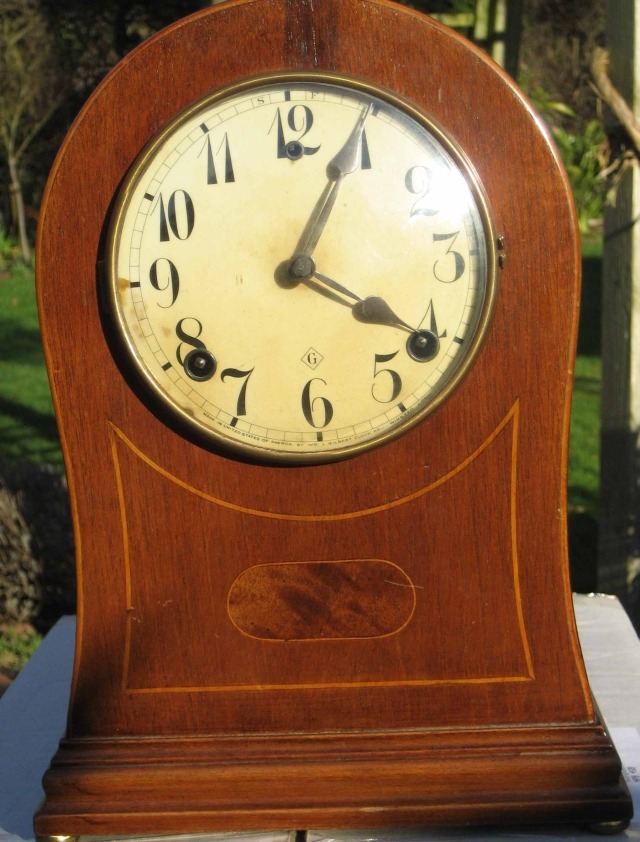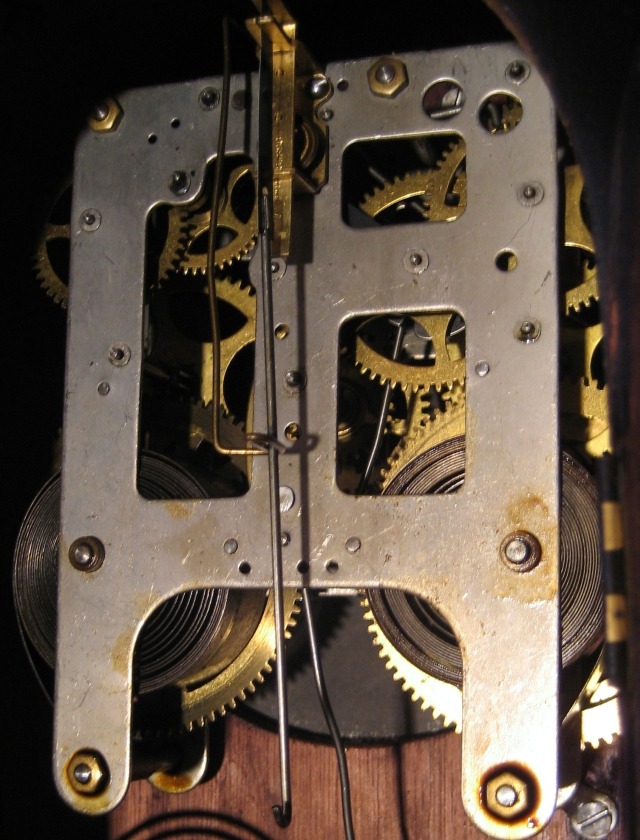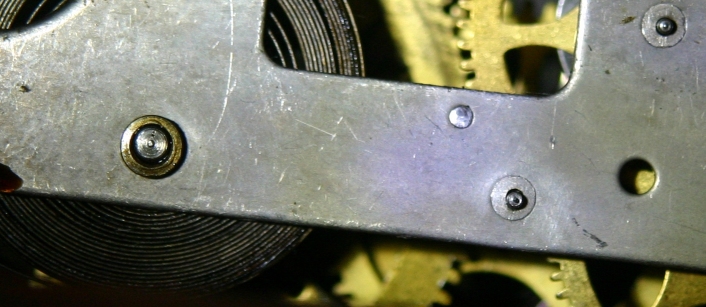
| WWT Shows | CLICK TO: Join and Support Internet Horology Club 185™ | IHC185™ Forums |

|
• Check Out Our... • • TWO Book Offer! • |
Welcome Aboard IHC185™  Internet Horology Club 185
Internet Horology Club 185  IHC185™ Discussion Site Main Page
IHC185™ Discussion Site Main Page  Horological Discussions, Questions and Answers
Horological Discussions, Questions and Answers  Clocks, Including 400-Day Discussions
Clocks, Including 400-Day Discussions  Help to Date and Identify Gilbert
Help to Date and Identify Gilbert
 Internet Horology Club 185
Internet Horology Club 185  IHC185™ Discussion Site Main Page
IHC185™ Discussion Site Main Page  Horological Discussions, Questions and Answers
Horological Discussions, Questions and Answers  Clocks, Including 400-Day Discussions
Clocks, Including 400-Day Discussions  Help to Date and Identify Gilbert
Help to Date and Identify GilbertGo  | New Topic  | Find-Or-Search  | Notify  | Tools  | Reply to Post  |  |
Hi all, A friend came in today and showed me this Gilbert which has been stored in his house for some while. Can someone tell me the likley date? Are the plates and bushes steel? They look like it but there is so much oil about it is difficult to be accurate. Do you experts rebush with steel bushes? Thanks in advance, Peter  | |||
|
Herewith a scan of the steel bushes in the steel plate. Winding arbors are brass. What sort of condition are those pivots going to be in? Recommendations invited! Peter  | ||||
|
Steel plates. Yuk. I hate to work on them. I don't believe anyone uses steel bushings. Brass or bronze are the norm. From what I see in the picture it looks like the original factory stamping. Tom | ||||
|
Tom, can you clarify please, are you saying these are steel bushes that were in place when it left the factory? That was my conclusion, so the factory tooled up for steel bushes? Peter uk | ||||
|
Peter, Most of that style movement I have seen have been steel plates with brass bushings at the pivot points. I think you may find the inserts brass if you scratch with a knife or something. I think many times the brass becomes discolored due to erosion of metals or something. If you find the inserts are indeed steel, you should be able to bore and bush with brass bushings, leaving an acceptable repair. One danger of doing this is the necessity to bore beyond the original insert. If steel, the inserts in the plates will likely dull your reaming tool. I usually use a worn out tool because I am not ruining anything good. It just takes a long time to ream them. I believe most steel plate movements were the result of metal shortage (either real or contrived) in the USA due to war efforts. I have a gut feeling that clock was manufactured in the teens or 20’s due to the steel plates, case style, etc. Best Regards, Dick | ||||
|
Dick, Thanks for your thoughts. I've taken some scans of the bushes after a light clean, and I still think we have steel bushes of a top hat section, and if so they were installed at the factory, which to me is an extraordinary thing to do. I know the claim that brass was in short supply but the wheels are made of brass. And the steel upon steel wear ? Why not run steel pivot in steel plate, maybe they had answer to the steel upon steel and used a different steel for the bush? Are these steel bush examples rare? How long did this steel bush regime last? Where else are they seen? Peter  | ||||
|
| Powered by Social Strata |
| Your request is being processed... |
|
©2002-2025 Internet Horology Club 185™ - Lindell V. Riddle President - All Rights Reserved Worldwide

